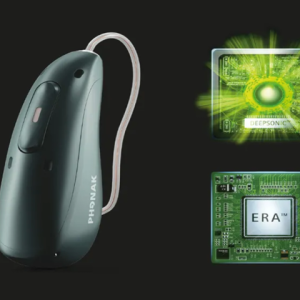
So-called Brain-to-Vehicle (B2V) technology will allow drivers to direct their vehicle simply by thinking about it. Unveiled on Thursday, Nissan promise B2V will make driving safer by improving auto reaction times and easing stress on the human at the wheel.
Competition to produce the first commercially available driverless car is intensely fierce, with rival Intel set on developing 3D mapping capability “within centimetres” of the vehicle.
Now the Japanese multinational auto firm pledges “more autonomy, more electrification and more connectivity” with its mind-reading remote control devices.
Using the new tech, the driver wears a headband to monitor brain waves and the data is analysed by Nissan’s autonomous systems. Computation will anticipate the intended movements of the driver and then promptly execute them. For instance, the car would sense the driver wishes to slow down or turn the steering wheel and then carry out this action 0.2 to 0.5 seconds faster than the human would have done.
Engineers promise the continually-adapting vehicle will deliver a “more enjoyable” driving experience. Employing an “autonomous mode”, the B2V-enabled auto will change its driving configuration or driving style based on detection of driver discomfort via artificial intelligence.
Driverless experts at Nissan even go so far as to claim the car will adjust its internal environment using AR “to adjust what the driver sees and create a more relaxing environment,” a press release on the manufacturer’s website said.
Nissan Intelligent Mobility – the smartcar division of the world’s fifth largest automobile manufacturer – will show off its futuristic vehicle tech in a simulator at the Consumer Electronics Show (CES) 2018 trade exhibition in Las Vegas on 9th-12th January.
BlackBerry, Baidu to partner on driverless software
Sony revs the engine on driverless cars with new micro sensor
Honda dream of driverless cars driven by unicorn
“When most people think about autonomous driving, they have a very impersonal vision of the future, where humans relinquish control to the machines. Yet B2V technology does the opposite, by using signals from their own brain to make the drive even more exciting and enjoyable,” said Nissan Executive Vice President Daniele Schillaci.
Challenging US-based car competitor Tesla, Nissan opened UK reservations for its c. £24,000-27,000 EV the 2nd gen Nissan Leaf on Monday, set to arrive on Great Britain’s shores in February. Surpassing 10,000 sales in Europe, the model is already the world’s best-selling all-electrical vehicle after Nissan began producing EV lithium-ion batteries in 2012.






